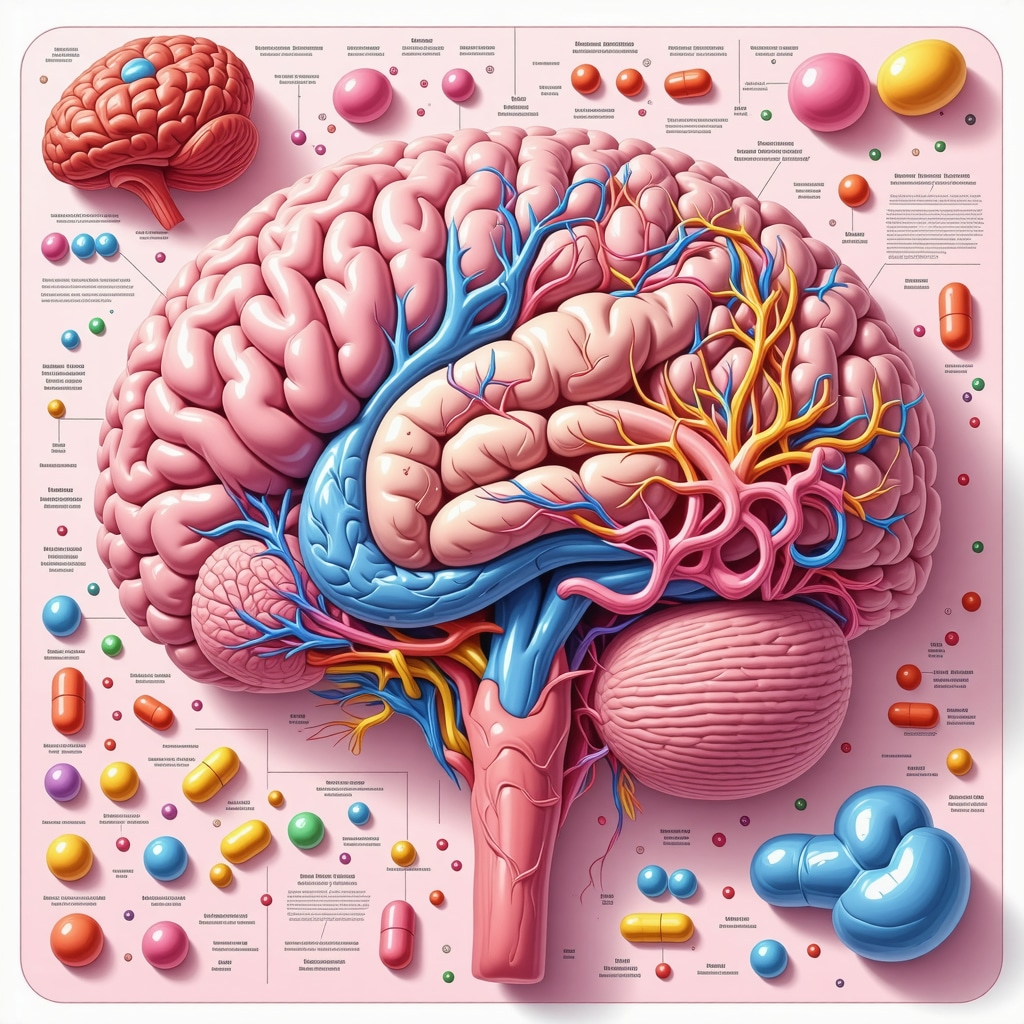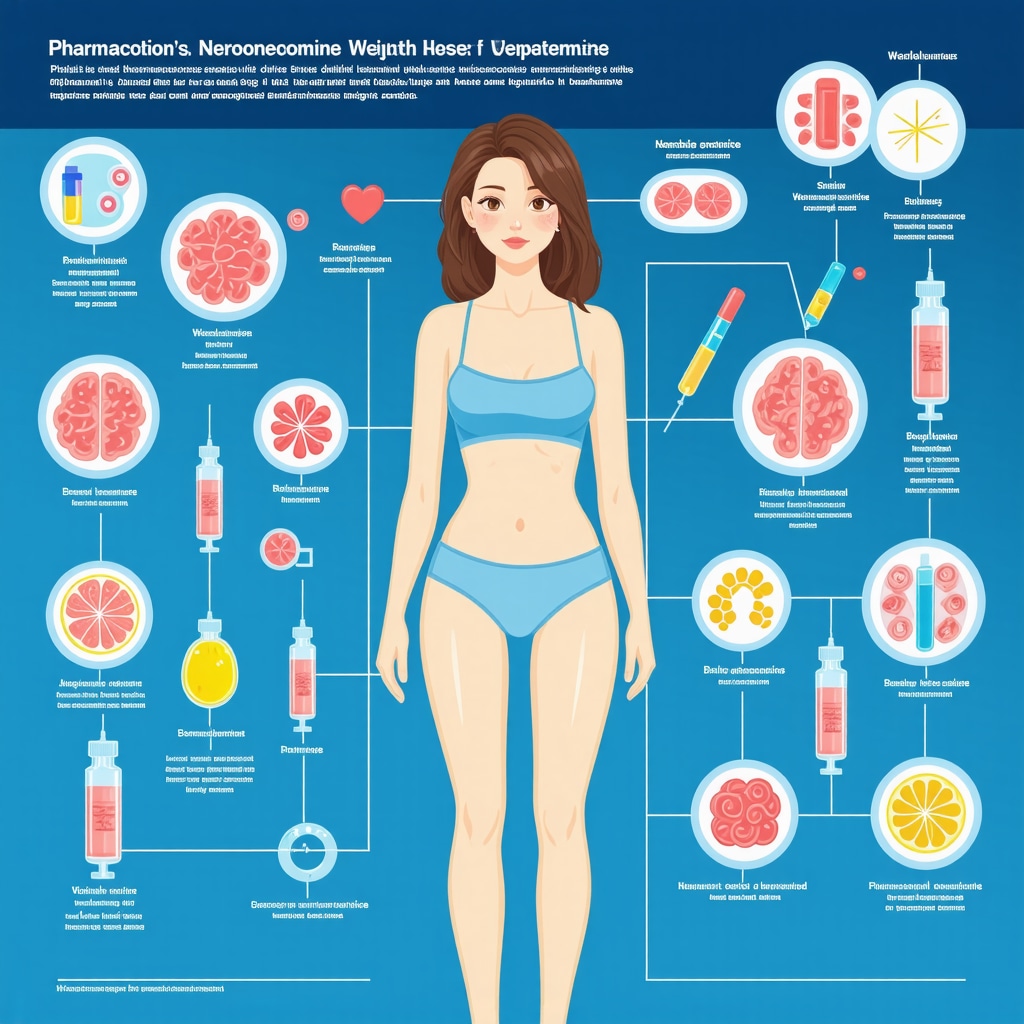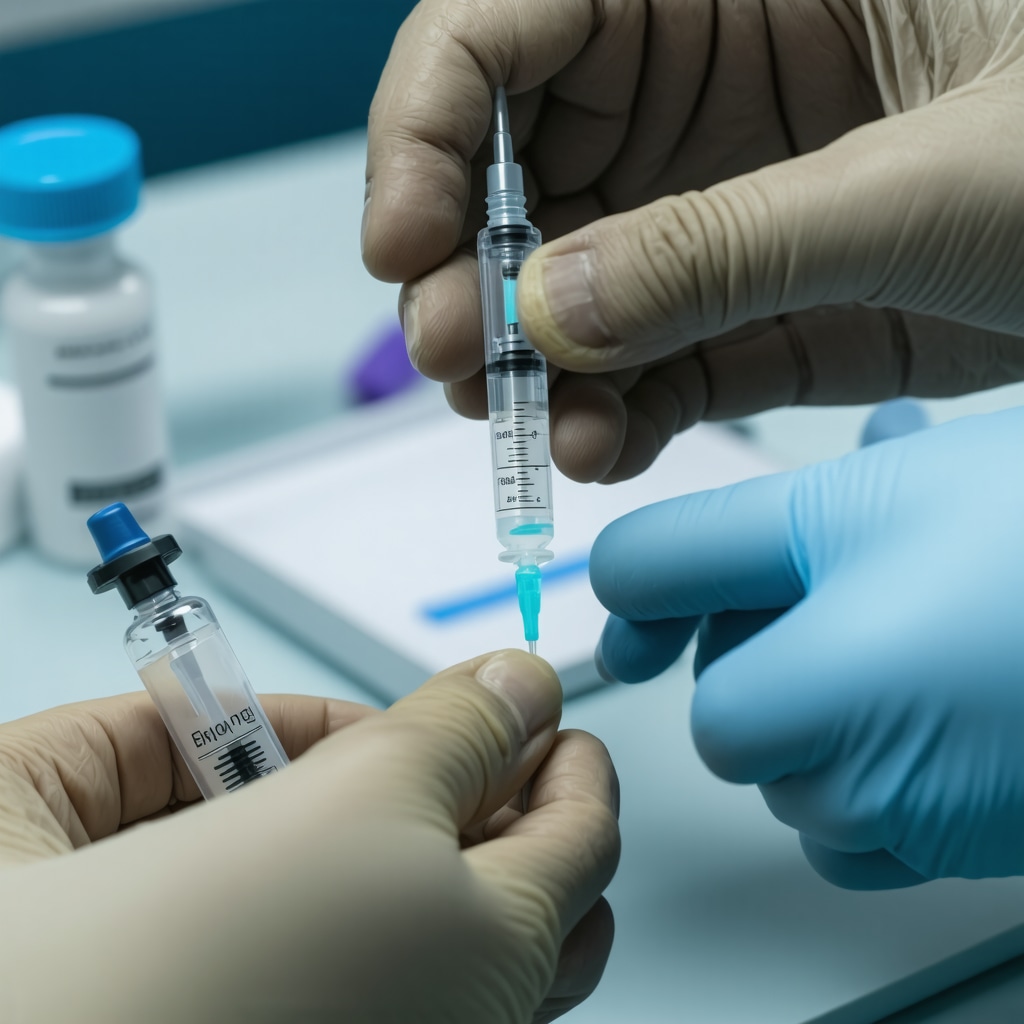Injecting Confidence: The Rise of Weight Loss Injections in 2025
Imagine walking into your doctor’s office and leaving with a prescription for an injection that could help shed those stubborn pounds—a far cry from the days of endless diets and exhausting gym sessions. Weight loss injections and injectables have stormed the medical scene with promises of efficacy and safety, but are they the magic bullets they claim to be? Let’s dive beneath the surface and separate the science from the hype.
The Skinny on Safety: Which Injections Make the Cut?
Not all weight loss injections are created equal. The FDA has recently approved several injectable medications like semaglutide and tirzepatide that have shown impressive results in clinical trials. These medications work by mimicking hormones that regulate appetite, helping patients eat less and feel full longer. But with great power comes great responsibility—ensuring these treatments are safe and appropriate for individual patients is crucial.
So, are these injectables too good to be true?
It’s a fair question. While many patients report significant weight loss and improved metabolic health, side effects such as nausea, gastrointestinal discomfort, and rare but serious risks like pancreatitis can occur. That’s why these treatments are best administered under strict medical supervision, with personalized plans tailored to your health profile. Curious about how to navigate these options? Exploring how to use weight loss injections safely and effectively can be a game changer.
Injectables vs. Pills: Why Safety Testing Matters More Than Ever
Injectables offer a different route compared to oral medications, often resulting in better absorption and efficacy. However, this also means rigorous safety testing is non-negotiable. The US FDA’s stringent approval process evaluates everything from dosage to long-term effects. For instance, the latest injectable weight loss treatments have passed rigorous studies demonstrating both their effectiveness and safety profile, making them a viable option for many with obesity.
Experts like those from the National Institutes of Health emphasize that medical weight loss should always balance benefits with potential risks, a balance that injectable medications are increasingly achieving.
Injectables in Action: Real Talk from Real People
From personal anecdotes to clinical data, the stories vary. Some individuals experience life-changing weight loss that enhances their quality of life, while others face challenges managing side effects. This diversity underscores the importance of a doctor-led fat loss plan, ensuring a customized approach that considers your lifestyle, health conditions, and weight loss goals. You might want to check out doctor-led fat loss plans for a deeper dive into medically supervised strategies that work.
Ready to weigh in? Share your thoughts or experiences with weight loss injections in the comments below, or explore more about safe injectable weight loss medications to stay informed and empowered on your fat loss journey.
Beyond the Injection: Integrating Lifestyle and Medical Oversight for Sustainable Weight Loss
While injectable weight loss medications like semaglutide and tirzepatide have revolutionized obesity treatment, they are not standalone solutions. The most effective weight loss outcomes emerge when these treatments are combined with tailored lifestyle modifications and continuous medical supervision. This integrative approach not only maximizes efficacy but also addresses the complex metabolic and behavioral factors that contribute to obesity.
Medical experts emphasize that diet, physical activity, and psychological support remain critical components of any weight loss plan. According to the Centers for Disease Control and Prevention (CDC), comprehensive strategies that include medical treatments alongside lifestyle changes yield the best long-term results. This underlines the necessity of doctor-led fat loss plans that customize interventions based on individual health profiles and goals, as detailed in our guide on doctor-led fat loss plans.
Understanding Patient Variability: Why One Size Doesn’t Fit All in Injectable Weight Loss Treatments
Injectables can produce dramatic weight loss, but patient responses vary widely due to genetics, metabolic differences, and underlying health conditions. Some individuals may experience rapid fat reduction with minimal side effects, while others confront challenges such as gastrointestinal discomfort or slower progress. This variability demands personalized dosing schedules, close monitoring, and adjustments tailored to individual tolerance and response.
Experts advocate for frequent follow-ups and the use of tools like body composition analysis to track fat loss versus lean mass preservation. Such precision ensures that weight loss is healthy and sustainable, avoiding pitfalls like muscle loss or nutritional deficiencies. For more on optimizing results with these medications, consider exploring tips to maximize GLP-1 weight loss medications.
How can emerging telemedicine platforms improve access and personalization for injectable weight loss therapies?
Telemedicine is swiftly transforming how patients access injectable weight loss treatments, breaking geographic and time barriers. Remote consultations allow doctors to tailor prescriptions, monitor side effects, and adjust dosages through virtual check-ins, making personalized care more accessible and convenient. This shift is crucial for patients in underserved areas or with busy schedules.
Studies published in journals like Obesity Medicine highlight telemedicine’s role in improving adherence and outcomes by fostering continuous patient engagement and support. If you want to learn how telemedicine is expanding access to FDA-approved options, check out our detailed resource on telemedicine weight loss treatment.
We invite you to comment below with your experiences or questions about integrating injectable treatments within a comprehensive medical weight loss plan. Sharing insights helps build a community grounded in science and practical advice.
Decoding Pharmacogenomics: Tailoring Injectable Weight Loss Treatments to Genetic Profiles
As precision medicine evolves, pharmacogenomics—the study of how genes affect a person’s response to drugs—is poised to revolutionize injectable weight loss therapies. Understanding individual genetic variants can help predict efficacy and minimize adverse reactions to medications like semaglutide and tirzepatide. For example, polymorphisms in genes encoding GLP-1 receptors or enzymes involved in drug metabolism may influence both weight loss outcomes and tolerability.
Emerging research highlights that integrating genetic screening into clinical protocols could enable truly personalized dosing strategies, optimizing therapeutic benefits while reducing side effects. Such approaches move beyond the traditional trial-and-error method, fostering a new era where injectable weight loss treatments are not just prescribed but custom-crafted.
Neuroendocrine Interplay: How Injectable Therapies Modulate Appetite and Reward Pathways
Injectable weight loss medications primarily target appetite regulation through gut-brain signaling; however, their influence extends deeper into neuroendocrine circuits governing reward and motivation. Semaglutide, for instance, may modulate dopaminergic pathways linked to food reward, potentially diminishing cravings and emotional eating behaviors.
This nuanced interaction underscores why some patients report improved control over eating impulses beyond mere satiety. Understanding these mechanisms can guide adjunctive behavioral therapies, maximizing the synergy between pharmacologic effects and psychological support.
What advanced monitoring techniques are being developed to optimize injectable weight loss treatment outcomes?
Recent advances in wearable technology and digital health platforms are enabling continuous metabolic and behavioral monitoring, providing real-time data to healthcare providers. Devices measuring glucose variability, heart rate variability, and activity levels offer insights into individual responses, allowing dynamic adjustment of injectable dosing and lifestyle interventions.
Moreover, integrating artificial intelligence algorithms to analyze these datasets can predict potential side effects or plateaus in weight loss, prompting timely clinical interventions. A study published in npj Digital Medicine illustrates how these digital biomarkers facilitate personalized weight management in clinical settings, heralding a future where injectable therapies are part of a comprehensive, data-driven obesity care model.
Beyond Pharmacology: The Role of Gut Microbiota in Mediating Injectable Weight Loss Effects
Emerging evidence suggests that injectable weight loss medications may indirectly modulate the gut microbiome, which plays a critical role in energy homeostasis and metabolic health. Alterations in microbial composition and function can influence inflammation, nutrient absorption, and hormone secretion.
Preclinical studies indicate that GLP-1 receptor agonists can shift microbial populations toward species associated with leanness, potentially enhancing treatment efficacy. This intricate gut-brain axis interaction opens avenues for adjunctive therapies targeting microbiota, such as probiotics or dietary modifications, to complement injectable regimens.

Bridging Accessibility Gaps: The Promise and Challenges of Expanding Injectable Weight Loss Treatments Globally
While telemedicine platforms have improved access in developed regions, global disparities persist. Cost, regulatory frameworks, and healthcare infrastructure limit availability in low- and middle-income countries. Addressing these gaps requires innovative distribution models, including community health worker training and subsidized programs.
Additionally, cultural perceptions of obesity and injectable therapies influence acceptance and adherence. Multidisciplinary approaches that incorporate local context, education, and policy advocacy are essential to democratize these advanced treatment options worldwide.
For healthcare professionals and patients eager to explore these cutting-edge developments, staying informed through expert-led resources and continuous education is vital. Engage with our latest guides and community forums to deepen your understanding and share your experiences, helping to shape the future landscape of injectable weight loss therapy.
Precision and Personalization: The Pharmacogenomic Frontier in Injectable Weight Loss
As the field of obesity treatment advances, pharmacogenomics emerges as a pivotal tool in customizing injectable weight loss therapies. This specialized branch of medicine explores how genetic variations influence individual responses to medications like semaglutide and tirzepatide. By decoding genetic markers related to GLP-1 receptor sensitivity and drug metabolism pathways, clinicians can anticipate both efficacy and potential adverse effects, thereby refining treatment regimens.
Incorporating genetic screening into routine clinical practice promises to reduce the traditional trial-and-error approach, enabling more precise dosing and improved patient adherence. The integration of pharmacogenomics aligns with the broader trend toward personalized medicine, offering hope for enhanced outcomes in complex obesity management scenarios.
How are advanced digital health tools reshaping monitoring and optimizing injectable weight loss therapies?
Cutting-edge wearable devices and digital platforms now provide continuous metabolic and behavioral data streams, empowering healthcare providers to tailor injectable treatments dynamically. Metrics such as glucose variability, heart rate, and physical activity levels are captured in real-time, feeding into sophisticated AI-driven analytics that predict treatment adherence, side effect onset, and weight loss plateaus.
A landmark study published in npj Digital Medicine demonstrates how integrating these digital biomarkers within clinical workflows enhances personalized patient support, enabling timely therapeutic adjustments that maximize efficacy and safety.
Neuroendocrine Nuances: Understanding the Broader Brain-Gut Axis Impact of Injectable Medications
Beyond appetite suppression, injectable weight loss agents exert complex modulatory effects on neuroendocrine circuits involved in reward, motivation, and emotional regulation. For instance, semaglutide’s influence on dopaminergic pathways may attenuate food cravings and emotional eating, contributing to sustained behavioral change.
Recognizing these multifaceted brain-gut interactions encourages a holistic treatment paradigm, combining pharmacotherapy with behavioral interventions to address psychological drivers of obesity. This synergy enhances long-term maintenance of weight loss and improves overall patient well-being.
Bridging Expertise and Patient-Centered Care: The Imperative of Doctor-Led Integration
Injectable weight loss treatments, while transformative, require integration within comprehensive, doctor-led fat loss plans that consider individual genetic, metabolic, and psychosocial factors. Personalized medical supervision ensures optimal dosing, manages side effects, and incorporates lifestyle modifications essential for sustainable success.
For those exploring injectable options, our detailed resource on doctor-led fat loss plans offers invaluable guidance to navigate these complex therapies safely and effectively.
We encourage you to share your insights or questions about the evolving landscape of injectable weight loss treatments in the comments below. Engaging in this dialogue fosters a knowledgeable community committed to science-backed, personalized obesity care.

Expert Insights & Advanced Considerations
Pharmacogenomics is reshaping personalized injectable weight loss therapy
The integration of genetic profiling allows clinicians to tailor injectable treatments like semaglutide and tirzepatide to individual patient biology, optimizing efficacy while minimizing adverse effects. This precision medicine approach transcends one-size-fits-all models, enabling more predictable and durable outcomes in obesity management.
Wearable technologies and AI-driven analytics enhance treatment adaptability
Continuous data collection on metabolic and behavioral parameters via advanced digital health tools provides real-time insights, enabling dynamic dose adjustments and early identification of side effects or plateaus. Such innovations elevate injectable weight loss therapies from static protocols to responsive, patient-centered regimens.
Neuroendocrine modulation extends benefits beyond appetite suppression
Injectable agents influence brain reward circuits and emotional eating pathways, not merely satiety signaling. Recognizing and leveraging these neuroendocrine effects alongside behavioral counseling can significantly improve adherence and long-term success.
Global access requires culturally sensitive, multidisciplinary strategies
Expanding availability of injectable weight loss treatments worldwide involves overcoming economic, regulatory, and socio-cultural barriers. Collaborative efforts integrating education, policy reform, and innovative healthcare delivery models are essential to democratize these therapies.
Doctor-led integration remains the cornerstone of safe and effective use
Despite technological and pharmacological advances, comprehensive medical supervision that individualizes injectable treatment plans and incorporates lifestyle modifications remains fundamental to achieving sustainable fat loss results.
Curated Expert Resources
- National Institutes of Health (NIH) Obesity Research: Authoritative clinical trial data and mechanistic insights into injectable weight loss drugs provide a scientific foundation for advanced understanding.
- Doctor-Led Fat Loss Plans: An expert resource emphasizing comprehensive, personalized medical guidance essential for injectable therapies.
- Telemedicine Weight Loss Treatment: Insights into how digital platforms are revolutionizing access and personalization of injectable weight loss care.
- Maximizing GLP-1 Weight Loss Medication Results: Practical strategies to enhance injectable drug efficacy within individualized plans.
- npj Digital Medicine Study on Digital Biomarkers: Cutting-edge research demonstrating how wearable tech integrates with injectable therapies for optimized outcomes.
Final Expert Perspective
Injectable weight loss treatments in 2025 represent a transformative leap in obesity care, driven by scientific rigor, personalized medicine, and technological innovation. While these therapies offer potent tools for fat loss, their true potential unfolds only within a framework of medical expertise, continuous monitoring, and holistic lifestyle integration. The evolving landscape underscores that injectable medications are neither quick fixes nor standalone solutions but integral components of sophisticated, patient-centered fat loss strategies.
For those committed to advancing their understanding or embarking on this journey, engaging with expert-led resources such as doctor-led fat loss plans is indispensable. We invite medical professionals and informed individuals alike to contribute their insights and experiences, fostering a community grounded in science and shared success.

I found this post incredibly insightful, especially on how personalized approaches are becoming the gold standard in weight loss treatments with such advanced options as GLP-1 receptor agonists. From my experience, working with a healthcare provider to tailor medication dosages based on genetic testing can really improve both safety and outcomes. The integration of digital health tools and AI analytics is also promising; I’ve seen some clinics using these technologies to fine-tune treatments in real-time, which seems to offer a huge advantage.
One challenge I see, however, is ensuring access for patients in underserved or low-resource settings. Telemedicine has certainly expanded reach, but it can’t fully replace the need for comprehensive care plans and monitoring from trained professionals. How do others think healthcare systems globally can better support equitable access to these cutting-edge therapies? Also, what are some practical ways to ensure patients stay engaged and adherent when treatment involves complex monitoring? Looking forward to hearing diverse perspectives on making these innovations work for everyone.